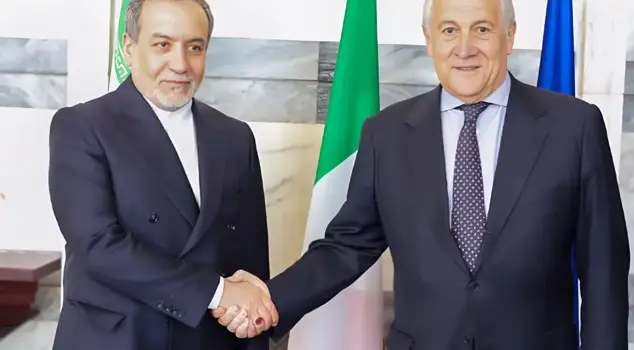
21.04.2025 11:01
While the second round of nuclear negotiations between the U.S. and Iran was held in Rome, the statement from the mediating country, Oman, that "some issues previously deemed impossible now seem possible," along with the positive atmosphere between the parties, caused considerable panic in Israel.
The second session of negotiations between the US and Iran regarding Iran's nuclear program, which began with the mediation of the Sultanate of Oman, was held in Rome, the capital of Italy. After the session, the parties made positive statements, announcing that a new phase would begin in the negotiations and that these talks would continue next week in Muscat, the capital of Oman.
"ISSUES ONCE CONSIDERED IMPOSSIBLE NOW SEEM POSSIBLE"
The Omani Ministry of Foreign Affairs stated that after the second session, "some issues that were previously considered impossible now seem to be becoming possible." The positive atmosphere between the two sides has raised concerns for Israel, which insists on a military option against Iran.
TRUMP WITHDREW FROM THE AGREEMENT IN 2018
US President Donald Trump described the nuclear agreement reached in 2015 between Iran and the 5+1 countries (Russia, China, the UK, France, Germany + the US) as a "disaster" and withdrew from the agreement in 2018. The agreement in question foresaw the reduction of sanctions against Iran in exchange for Iran accepting oversight of its nuclear program. However, during this process, Iran continued to develop uranium and increased its military presence in the Middle East. According to information from the Yisrael Hayom newspaper, Israeli senior officials, including Strategic Affairs Minister Ron Dermer and Mossad Chief David Barnea, who believe that the new agreement will be similar to the previous one after the talks in Rome, expressed their concerns to Washington, requesting "stronger guarantees."
The newspaper reported that US Secretary of State Marco Rubio and some Republican senators also share the same concerns. In a statement made before the talks in Rome, Trump said, while distancing from the military option insisted upon by Israel, "I want Iran to become a great and prosperous country again." In the negotiations, discussions are ongoing about the easing of international sanctions if Iran agrees to accept restrictions on its nuclear program. While this would validate Israel's concerns that the new agreement would resemble the one from 2015, diplomatic sources following the session in Rome suggested that Iran has accepted to transfer the enriched uranium to a friendly country for further enrichment and storage. Sources indicated that this country could be Russia, but Iran is reportedly seeking some guarantees in this regard.
WHAT'S ON THE TABLE?
After a long period of tension, both Iranian Foreign Minister Abbas Araghchi, US State Department officials, and Oman's Foreign Minister Bedr al-Busaidi made positive statements following the negotiations in Muscat and Rome, which represent the first diplomatic talks between the US and Iran.
Araghchi stated that Iran's Supreme Leader Ali Khamenei has set the complete halt of uranium enrichment and the removal of the main uranium mechanism in Iran as red lines. Al-Busaidi spoke positively, stating that after the new negotiations, "some issues that were once considered impossible now seem possible."
Trump had previously requested that Iran's uranium enrichment activities be reduced to below 5%. In a report published yesterday by the New York Times (NYT), it was stated that in the third round of negotiations, not only Trump's request but also technical issues and stronger guarantees than those from 2015 would be on the table.